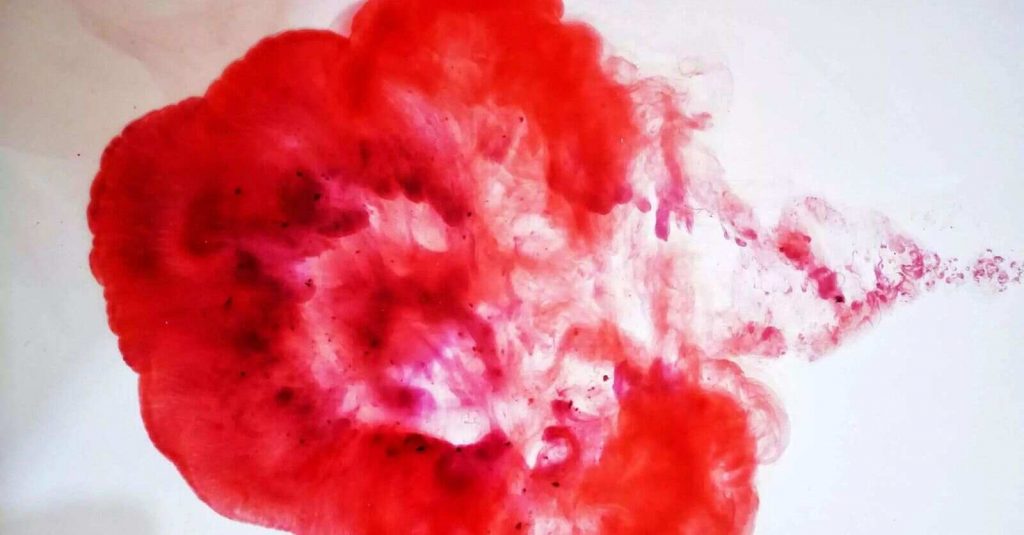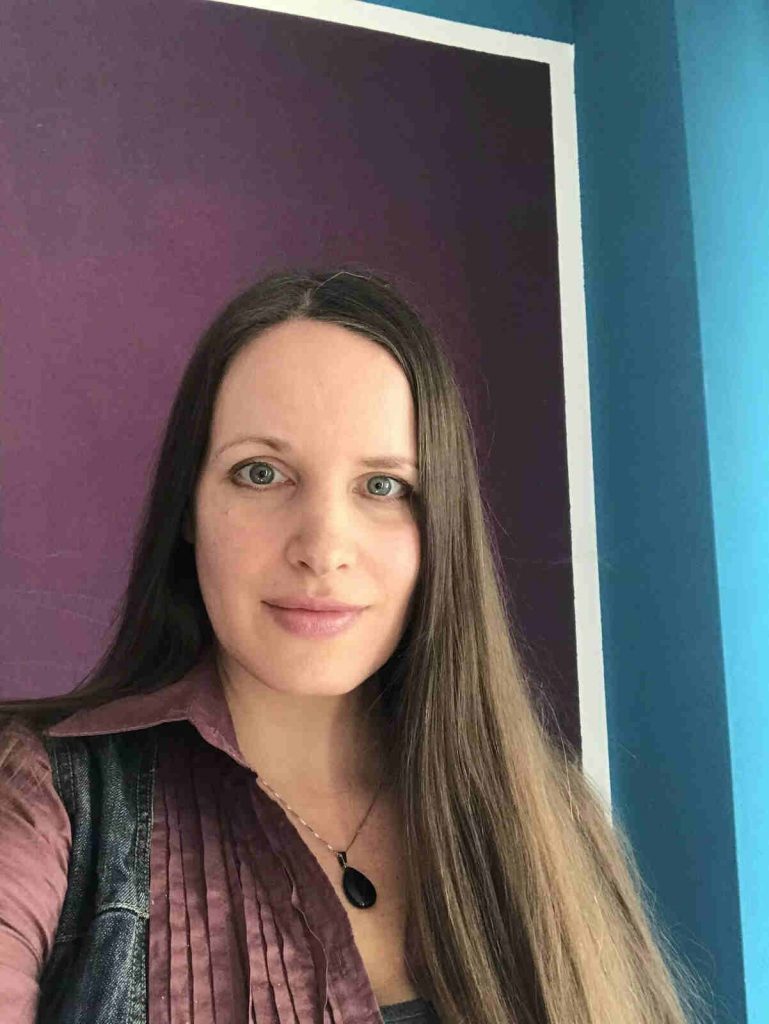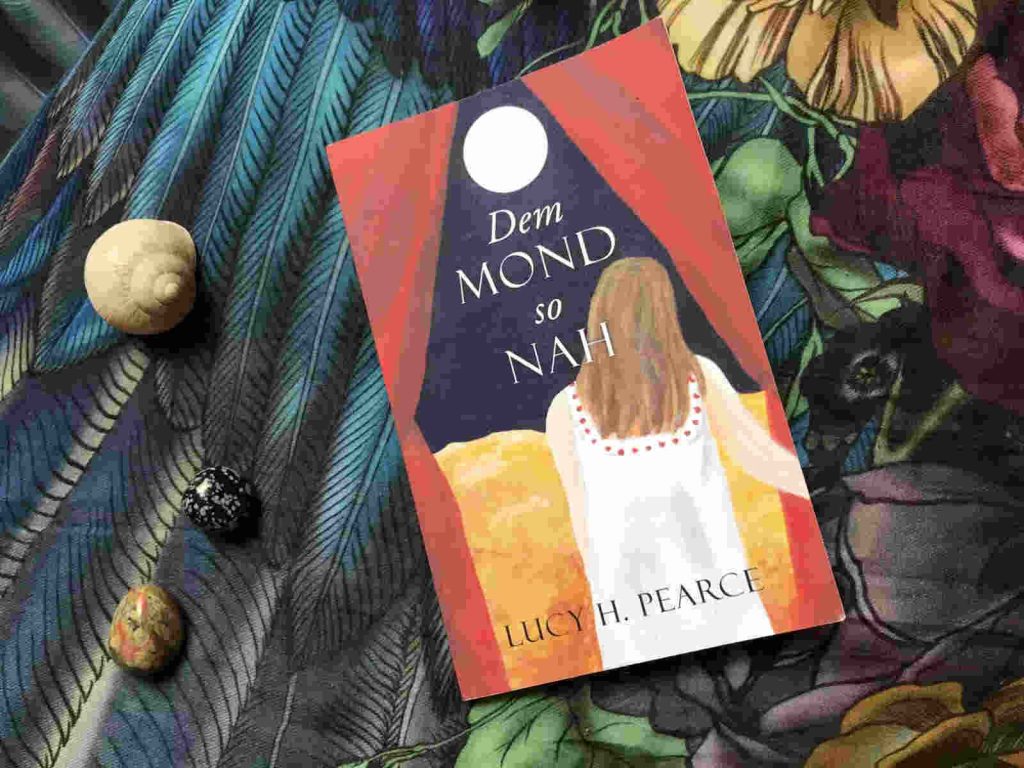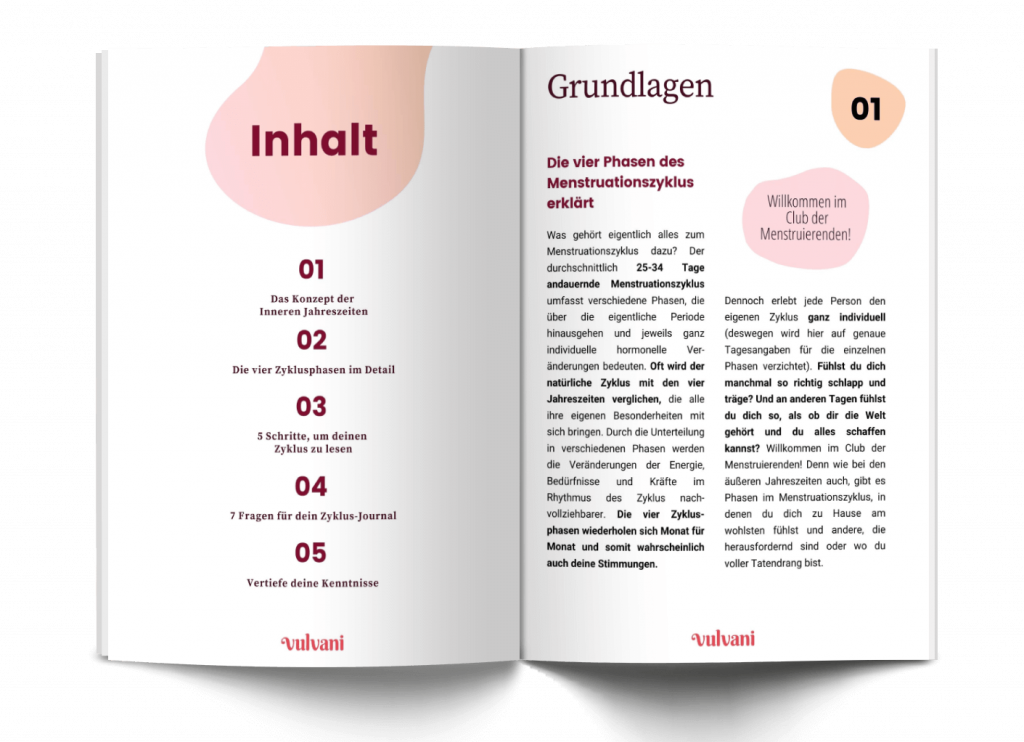
Discovering your menstruation as a spiritual practice
Yasmine understands her menstruation as a spiritual practice and shares in this interview how she is connecting more with her own body through cycle awareness.

Even as a young woman it was clear to me that I wanted to talk openly and naturally about my (first) period with my family. And that it was especially important to me to talk openly with my children to break the taboo of the first period.
In addition to our conversations, I handed my children a book that explains menstruation profoundly. Not just the biological facts or how to deal with period products. A book that understands menstruation as a transition from child to adult menstruating person and marks this transition as something special. I was only able to find this book in English and so I took the chance to translate it into German: “Dem Mond so nah” (Close to the moon) was published this summer.
Here is my personal story:
The subject of menstruation was an incredibly fascinating one for me as a young girl, just before entering my teens. Therefore, I read everything I could get my hands on about this topic. But except for the most important biological facts in school and a youth encyclopaedia, which I found in my parents’ bookshelf, I didn’t feel very enlightened. Additionally, of course, you could find a lot of information in the then fashionable magazines Bravo, Girl! or Mädchen. Nevertheless, the first period was a taboo subject. I don’t remember anyone talking openly about it in my family. Even my older sister didn’t tell me when she had her first period. People simply kept quiet about the subject as much as possible.
Nonetheless, I was literally feverishly awaiting my first menstruation. For me, this entry into “being an adult” had something magical and special about it. It felt to me as if I was entering a new world.

I’m all the more surprised that today, I actually can’t remember my very first bleeding: I can only remember that I was twelve years old. Maybe I can’t really remember because I felt I couldn’t really talk openly about it with anyone at the time. Or maybe because the first bleeding was not seen as something positive or even a reason to celebrate – neither in our family nor in my whole environment.
At that time, periods were simply something a girl gets for the first time between the ages eleven and 14. We were told about period products and how to use them, and that it makes sense to take notes about the onset and duration of your bleeding to keep track of the menstrual cycle.
Later, most menstruators took the birth control pill, so there was no need to keep track anymore. Nowadays, I’m personally quite critical of the birth control pill and other hormonal contraceptive methods. People often spoke disparagingly about menstruation. Menstruators complained about having their period “again” and how annoying it was. To some, the bleeding was disgusting and therefore tried to avoid it completely by taking the birth control pill.
By the time I was an adult and had become a mother, my relationship to my body and thus also to my periods had completely changed. It began when I stopped taking the birth control pill in my mid-20s and therefore found my way back to my natural cycle, which was suppressed by taking the pill.
A few years ago, I began to occupy myself more intensively with the topic of menstruation again. Not least because that my oldest daughter slowly came into the age where she began to be interested in the topic of the first period and started to ask more questions. But also because I felt that this topic is still a taboo for many young and older menstruators, especially mothers. I was also particularly interested in the role of the moon in relation to the rhythm of my cycle, as well as the different phases that I could perceive each month based on my emotions and thoughts. I started reading a lot about these topics and observed myself and my body very closely.

Since we love books, I felt a great need to give my children one that conveys a positive and empowering relationship with their bodies and menstruation. Something that captures the magic of changing when growing up and yet is practical and down to earth. A book so comprehensive, that it can be seen as a guide for young menstruating people. But at that time, I couldn’t find a book in German which met these requirements. That genuinely put into words what I felt inside me in relation to menstruation.
Since I already knew the English book “Reaching for the moon” by the Irish author Lucy H. Pearce and thought it was great, I contacted her and asked whether the book would also be published in German in the near future, which she denied. I spontaneously received the offer to translate this book into German and immediately accepted.
With this translation and the deeper dive into the topic of menstruation, an intense journey started: to myself, to my body and to my cycle. This journey led me to insights about menstrual principles and to a time when the transition from child to adult menstruating person was still marked by rituals and celebrations. I could literally feel my body connecting to the rhythms of nature – stronger than ever. A connection that felt somehow sacred. Exactly what I had felt as a young girl … namely, that as a child you enter a new world at the onset of menstruation. In addition, there was something enormously healing about learning a different, loving and positive way of dealing with menstruation as an adult menstruator and mother.
The German title of the book “Dem Mond so nah” (“So Close to the Moon”) very vividly describes the connections between the menstrual cycle and the phases of the moon. It starts with a fictional journey to a red tent. A place where menstruating people traditionally met once or several times a month to celebrate their menstruation, in a special way. The book also describes the physical changes before the onset of the first period. But also, during the menstrual cycle, such as changed vaginal discharge, as well as changed moods and energy levels. It also addresses period products (especially alternative period products), as well as natural remedies for discomfort while menstruating. In great detail, it describes the stages that all menstruators go through during their cycle. I immediately recognized myself in these descriptions and felt an invisible bond connecting all menstruating people.
To me, the book is a real treasure for young menstruators, but also for adult ones. It offers so much knowledge and wisdom about understanding and confidently dealing with one’s own menstrual cycle. At the same time, it is written in a very sensitive way, easy to read and understand. I am convinced that books like this help to break the taboo of the first period.
Today I have a very natural relationship with my menstrual cycle. I feel so strongly connected to my body and my cycle that I can clearly feel the individual cycle phases. I know when my ovulation takes place and when my period arrives, navigated by the moon. Because – as I have learned – it can be a guide and its phases are like those of my menstrual cycle. Having such a strong connection to the rhythms of nature has opened new worlds for me.
Even during my current pregnancy, I feel this connection clearly – and: I am already translating the next book by Lucy H. Pearce about menstruation. But this time for adult menstruators, because for me, the taboo around menstruation and the menstrual cycle belongs to be crashed, so that we as menstruating people can find a new, strong self-confidence and discard the shame that usually revolves around our monthly bleeding.
You have read Katja’s article and now you want to break the taboo of the (first) menstruation yourself? Then let’s work on it together! Because that’s what Vulvani is all about, an open-minded and open world where periods are no longer a taboo topic. Then how can we achieve this? By actively promoting openness and thus fighting against the stigma of menstruation. So here are some tips and ways you can actively ensure period acceptance:
Do you have any other tips for being more open? Feel free to drop us a comment!
*This article has been edited for gender-sensitive language.



Yasmine understands her menstruation as a spiritual practice and shares in this interview how she is connecting more with her own body through cycle awareness.

What options are there for male birth control? Ailsa delivers an overview of what is available now, and what may come in the future.

Sustainable underwear? The founders of TUKEA talk about fair labour conditions, body diversity and body literacy.
…and empower countless women to make empowered choices about their bodies!

